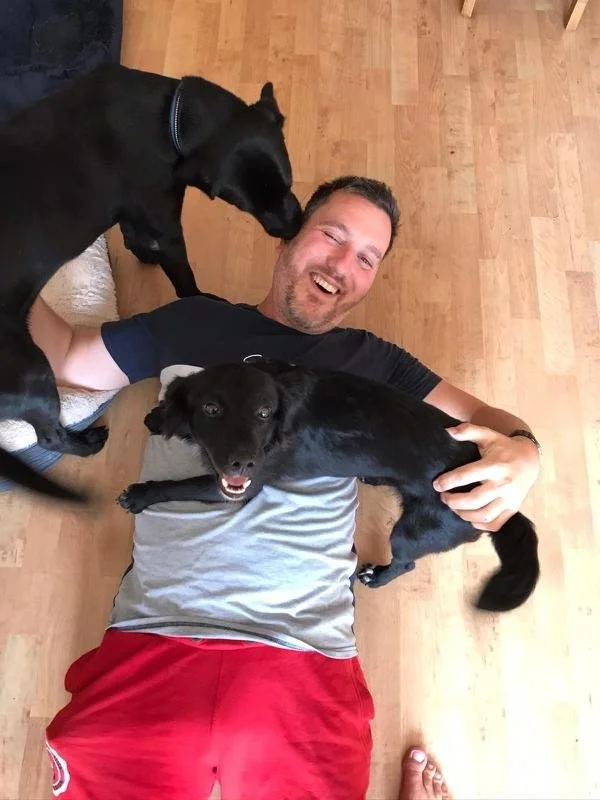It's Always Sunny, Somewhere!
This week I am drawn to write about depression and mental health. About how we can all be susceptible to feeling down - and things we can do to support ourselves and look out for each other.
Given the circumstances the world finds itself in these days, with an ongoing pandemic and the outbreak of war, one imagines it would take a very strong and resilient person to not have had some struggles with their emotional wellbeing (state of mind) over recent years.
As someone who has spent the majority of my life as a very ‘Happy go Lucky’ chappy, it came as somewhat of a surprise to me when I first started to suffer with depression, during my late 20s. In fact, it took me a good while even to recognise what was happening. I became very insular, only wanting to be in places where I felt safe and comfortable. I was more reclusive and antisocial – all things that up until that point were completely alien to me. When I finally realised what was happening – I could not pinpoint a cause so could not, therefore, anticipate how long it would last. The feeling of being out of control of my emotions was very unnerving. And I only suffered mildly.
We are all unique
Some feel these things more acutely, and I know people who have constant battles with maintaining control of their mental health. Depression, anxiety and other maladies of the mind can be all-consuming.
Such issues affect us all in one way or another, either directly or indirectly. Many will suffer personally, or be around loved ones that are having a tough time.
The topic has been considered taboo for decades, maybe centuries. There has long been a culture of brushing stress, anxiety or depression under the carpet and suffering alone. People are afraid to be perceived as weak or vulnerable.
It is important to break down the stigma and open the discussion up so we can all be more aware of how those around us are feeling , who might need some help - and educate ourselves on how to develop coping strategies to manage difficult feelings when they arise. Mental health issues can be as debilitating as physical ones can.
I have watched friends have breakdowns up close, and have even lost some of those in my broader circles to suicide. People’s journeys are not all the same, and the suffering that leads up to someone taking their own life, and the suffering this leaves behind, are all too sad and all too real. Knowing what we can do to help our fellow humans, and ourselves can feel a bit like having some excellent armour before going into battle. It can give us a good dose of peace of mind.
Circumstances
If you are aware a friend/colleague has been having a particularly hard time at work, financial worries, or a bereavement, make sure they know you are there for them if they need you. Don’t assume they will reach out if they need to. Stay close and offer help as often as you feel is appropriate.
Spotting the signs
There are clues you can watch out for in those around you. Mood, appetite, engagement, changes in diet or drinking more/less than usual, emotional outbursts seemingly out of control – all these things can be flags to watch out for, signalling someone needs help.
https://www.bupa.co.uk/health-information/workplace-mental-health/signs-poor-mh
There are a number of things one can do to help yourself these days. Also a number of ways you can spot, and therefore assist, those around you, either in a social context or a work one.
One to One Counselling
In many places around the world, therapy is now available for free, or at greatly reduced rates, for those who need it. In the UK, your GP can refer you for some counselling, often on the NHS. Governments, employers and insurers have realised the human cost to society and to business of having people incapacitated through mental health issues, which is as valid an issue as a physical health issue. Get the help that you need, however you need to. I have tried various forms of counselling over the years, from CBT to Hypnosis. Find something that works for you.
Group support
I have had the opportunity to make use of bereavement group therapy of late and found it very useful to share my experiences with others who have had similar events along their journey. A very useful tool in my case, and there are groups out there for all kinds of issues, including alcohol and drug dependency and anxiety.
Antidepressants
Another one I am personally very grateful to the scientific/medical profession for. What the world is going through at the moment is a lot for us all to cope with, in itself. Add into that mix any number of personal tragedies that can befall any one of us, and sometimes, we might need some additional help. Another one that should not be taboo to talk about.
Make a change
If your circumstances are part of the cause of what is bringing you down, change them! Whether that is leaving a toxic relationship, changing job or moving location, a change can bring about new beginnings and for some, this will help.
Self-compassion
We can be so hard on ourselves, but when we are feeling down is the time to treat ourselves with kindness and compassion.
Talk to someone about how you are feeling
Friends, family, your GP, a helpline. Did you know that serotonin is released when we talk about our problems?! It really IS good to talk!
Go for a walk
Studies have shown that getting into nature is hugely beneficial for our mental health, and a mindful walk in a park gives double points, because we get some exercise too!
This too shall pass
There is not a ‘One answer fits all’ solution to this, but hopefully there is something to help everyone available out there.
I have always been grateful for the life I have carved out for myself and am/have been lucky enough to feel thankful for my ‘lot’. I have lived in some great places and I have a wonderful support network through my ‘Urban Family’. My circle of friends are solid and a real foundation for me to base my values on. I know I am loved and respected and that I contribute actively to others’ quality of life too.
Given my luck, and given the few rounds of depression I have been through over the years, I can only imagine that these things must be FAR worse for those who find themselves in less fortunate positions.
The thing I found most useful to cling onto in my few episodes of depression and anxiety, and that maybe you will find helpful too – is that nothing is forever. Things, time, circumstances… they all pass. And it is always sunny, somewhere in the world.
Reach out for help
There are very few people who do not struggle with their mental and emotional health at some time in their lives. It can feel very lonely when we have these issues, but Thankfully, there are many agencies who are there to help, whether it is in a mental health crisis, or more long term challenges.
It's important to note that this blog is just my thoughts and musings, and is not intended to be taken as professional advice or content. If you are struggling, please seek professional advice and support.
Below are some useful resources to help you help yourself and your loved ones.
Stay safe and look out for your brothers and sisters out there. Let's be kind to ourselves and others, it just makes the world so much nicer.
Sending thoughts to those having a Difficult Day today and hope you have your own Piglet to sit beside you 🧡
Big love to you all.
https://www.nhs.uk/mental-health/self-help/guides-tools-and-activities/
See you next week!











